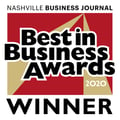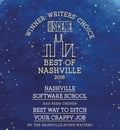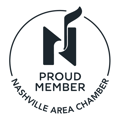Can you teach yourself to code for less than the cost of bootcamp? Sure. But if you’re planning to make a career transition to a software developer, data analyst, or data scientist, you’ll most likely discover that there’s more to learn than just how to code.
We recently spoke with several of our web development alumni who gave self-study a try before attending bootcamp and they had a lot of great advice. In fact, they had so much to say we’ve decided to start a short series of posts about the benefits of self-study and where it falls short when changing your career.
Self-Study Is A Great Way To Explore Coding
The alumni we spoke with started learning to code for different reasons. A few had been interested in technology for a long time and thought coding would be a good way to explore technology deeper. One alum was a teacher and wanted to learn something new so he could put himself in his student's shoes. Another started just for fun, but then she started to build apps that would make her job easier. A third alum fell into it when he needed to build a website for his side business. Only a couple of alumni that we talked to started learning to code because they were interested in a career change.
For those that knew about bootcamps when they started learning to code, the cost was a bit of a barrier. Even if they had the money ready to invest in their education, they did not want to spend it unless they knew they would like the job they were training for. With lots of free and low-cost resources to learn from, self-studying was the perfect way to dip a toe into the world of coding.
Between them, they used just about every resource imaginable to start their journey, including FreeCodeCamp, Codecademy, Udemy, Udacity, The Odin Project, Stack Overflow, Treehouse, YouTube videos, Lynda, Pluralsight, and books borrowed from friends.
Their efforts lasted from 4 months to 4 years before they each started at NSS. For all of them, this period of self-study was worth it as it confirmed their interest in becoming a developer. The self-study skills they developed had another benefit as well, but more on that in a later blog.
Can You Get A Job Being Self-taught?
There are developers in Nashville who are self-taught, but getting employers to consider your application when they also have applicants from bootcamps and college graduates with Computer Science degrees can be a challenge.
After a few months of self-study, Trent Hand, Web Development Cohort 16, explored what it would take to get a job:
I tried to connect with working devs to see what it would take to get a job. The biggest feedback I had was to build working apps and get them out there. I set up a GitHub account and put some small Android apps there. - Trent Hand
He admits that he didn’t put a lot of effort into his job search pre-bootcamp, but he was on the right track – hiring managers want to see what you can build.
John Achor, Web Development Cohort Evening 7, had studied on-and-off for four years, but decided not to try a job search. He knew he wasn’t ready to work as a developer.
Jonathan Edwards, Web Development Cohort 27, applied for a job after completing the Front-end Web Development track on Treehouse. He never heard back.
Laura Pinell, Web Development Cohort 24, freelanced as a front-end web and WordPress developer. While she had used self-study to get to the point of booking part-time work, she wasn’t confident enough in her skills to work as a freelance developer full-time.
Self-study was a great way for all of these alumni to explore coding with little-to-no monetary investment and sparked or confirmed their desire to turn coding into a career.
Through self-study, they gained skills, built a few applications, and some even connected with working developers. However, most felt that they needed to take another step to truly make the career transition.
Next week we’ll look at what led these eight alumni to pursue a bootcamp, and NSS in particular, to achieve their career transition. Read NSS Bootcamp vs. Self-study | The Benefits And Pitfalls of Self-study.
Thank you to the following alumni for participating: Ronnie Young, Trent Hand, Jordan Castelloe, Jeremy Wells, John Achor, Jonathan Edwards, Laura Pinell, and Jeremy Landi.







